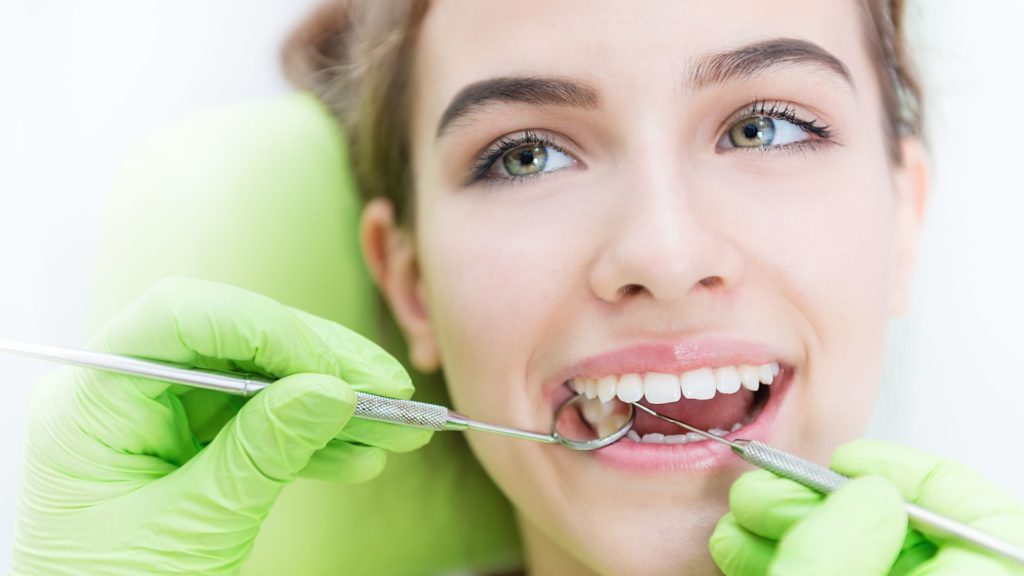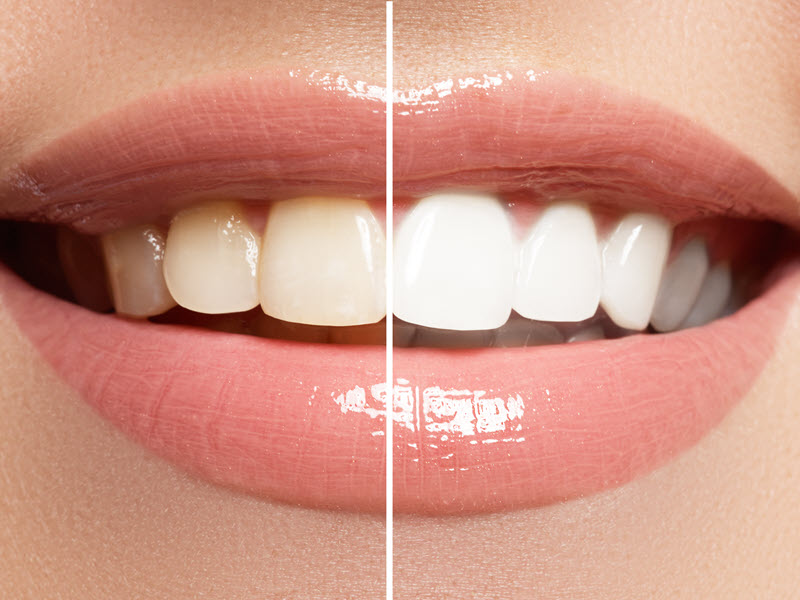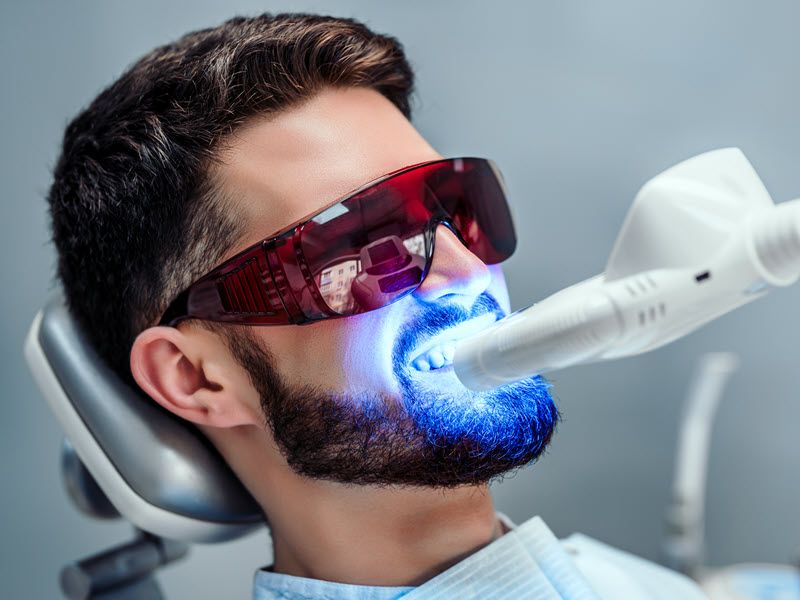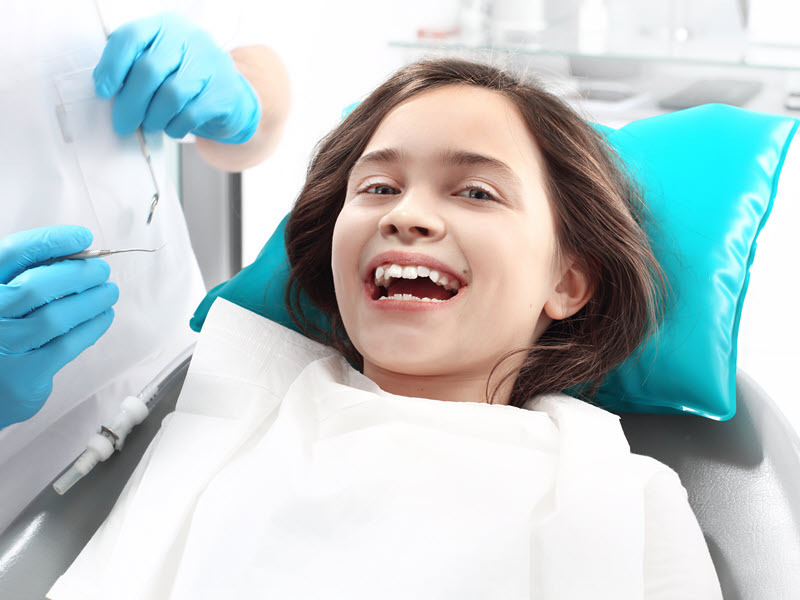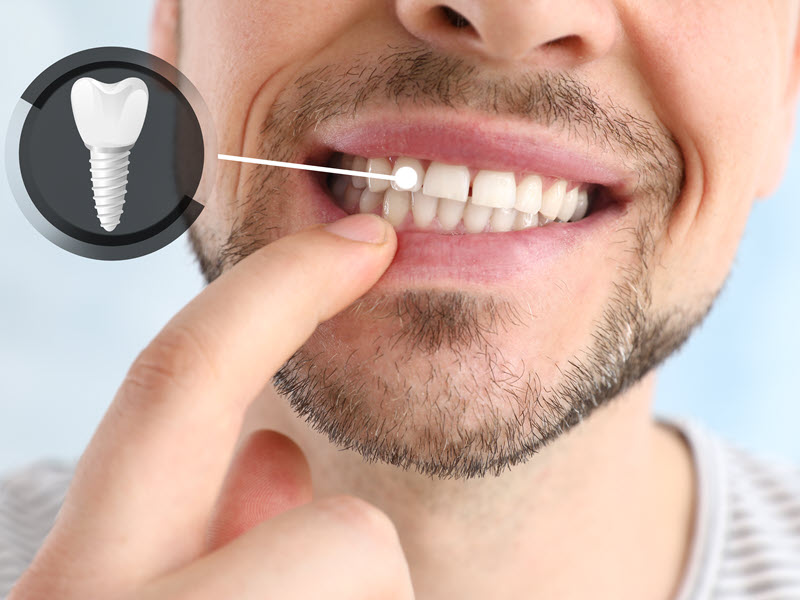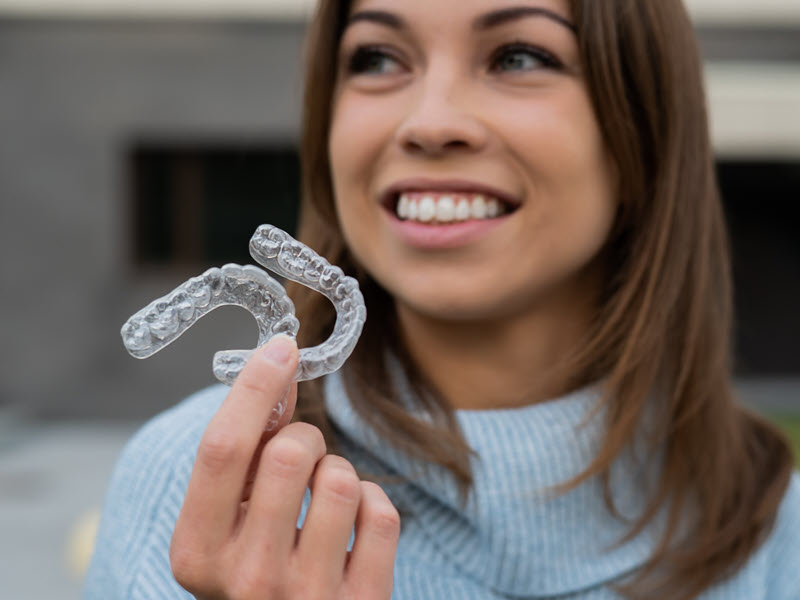What Does an OralDNA Labs Test Show?
Overview of OralDNA Labs Testing
As part of embracing the latest technologies to provide our Fort Collins patients the best possible dental care, Murphy Dental offers OralDNA diagnostic testing with MyPerioPath. The test is a diagnostic test – a saliva test – that is used to properly detect and assess oral infections among other conditions.

An OralDNA Diagnostic Test from Oral DNA Labs Offers a Range of Salivary Diagnostics
How It Oral DNA Testing Works:
- Sample Collection: A simple saliva sample is collected.
- Laboratory Analysis: The sample is sent to OralDNA Labs.
- Results: You get a detailed report of the bacteria in your mouth.
Services Provided:
- Pathogen Detection: Identifies harmful bacteria causing oral issues.
- Clinical Laboratory Testing: Uses state-of-the-art technology for accurate results.
- DNA Testing: Analyzes genetic markers related to oral health.
Significance of Saliva in Diagnostics
Saliva plays a major role in understanding your health. You produce this fluid continuously, which makes it an easy and painless sample to collect.
Salivary Diagnostics use saliva testing to identify various health conditions. This method can identify biomarkers for diseases. Common conditions detected include periodontal disease, viral infections, and genetic markers related to oral health.

Oral DNA Salivary Diagnostics Can Identify Bacteria and Infection in your Mouth. In the video Above, the Negative Impact of Bacteria and its Effect on your Overall Health
Saliva contains biomarkers like enzymes, antibodies, and hormones. These indicators help in detecting specific diseases early. Early detection improves treatment outcomes.
Oral health benefits greatly from salivary testing. By analyzing your saliva, doctors can spot bacteria that is causative or correlated to gum disease, cavities, and even certain systemic diseases and cancers. This helps in preventing severe health issues.
Benefits of Salivary Testing:
- Non-invasive: No needles needed.
- Convenient: Easy to collect at home.
- Comprehensive: Detects multiple conditions.
Using saliva for diagnostics offers a practical and effective way to monitor your health.
OralDNA Lab Tests
OralDNA Labs offers a variety of tests that help you monitor and maintain your oral health. Each test targets specific oral conditions and risk factors.
MyPerioPath
MyPerioPath identifies the bacteria in your mouth that cause gum disease. The same bacteria can be causative or correlated to systemic diseases and cancers. It uses a simple oral rinse to collect samples. This test specifically checks for bacteria linked to periodontal disease. Some of the tissue invasive, resistant and systemic bacteria may require oral antibiotic use as part of the overall treatment.
Results show the types and amounts of these harmful bacteria. This helps your dentist create a treatment plan. The goal is to reduce or eliminate these bacteria and improve gum health.
Benefits:
- Identifies harmful bacteria
- Helps customize treatment plans
- Prevents gum disease
MyPerioID IL-6 PST
MyPerioID IL-6 determines your genetic risk for periodontal disease. It checks for certain gene markers that can make you more likely to develop this condition.
Higher genetic risk means you may need more frequent check-ups and aggressive treatment. Early detection can prevent serious gum damage.
Key Points:
- Analyzes genetic markers
- Assesses risk for gum disease
- Guides preventive care
Celsus One
Celsus One tests for various oral pathogens. These include bacteria and viruses that cause oral and systemic diseases. This test uses DNA technology to identify these pathogens.
Knowing which pathogens are present can help your dentist target treatment more effectively. This can improve both oral and overall health.
Important Features:
- Detects multiple pathogens
- Uses DNA testing
- Enhances treatment plans
OraRisk HPV
The OraRisk HPV oral DNA test checks for the presence of human papillomavirus (HPV) in your mouth. HPV is a risk factor for oral cancer. Early detection of HPV can lead to earlier treatment and better outcomes.
This Oral HPV test requires a simple oral rinse. It identifies which type of HPV is present. This information is crucial for managing your health risk.
Highlights:
- Screens for HPV
- Aids in early cancer detection
- Simple and quick test
OralDNA Labs tests offer valuable insights into your oral health. They help your dentist create effective treatment plans based on specific bacteria, genetic risks, and pathogens present.
Testing Process and Methods
The OralDNA Labs test helps diagnose periodontal disease through a simple oral rinse collection and advanced DNA sequencing methods. The process checks for harmful bacteria and uses precise technologies for detailed results.
Oral Rinse Collection
The test starts with an oral rinse collection. You swish a small amount of sterile solution in your mouth for 30 seconds. This collects your saliva and the bacteria present.
The process is non-invasive and quick. After rinsing, you spit the solution into a container. Then, the sample is sealed and sent to the lab. The lab uses this sample to identify the bacteria in your mouth. This step is critical for accurate diagnostic testing and future treatment plans.
Next-Generation Sequencing (NGS)
Next-Generation Sequencing (NGS) is a key part of the OralDNA test. This method reads the DNA in your sample to find specific bacterial genes. NGS is precise and can detect even small amounts of bacteria.
The technology looks at multiple bacteria at once. This gives a complete profile of the bacteria in your mouth. It also helps identify any genetic markers related to systemic inflammation or disease. Using NGS, the lab can provide detailed and accurate diagnostic testing for oral health.
Sample Analysis
Once the sample reaches the lab, the analysis begins. The lab first prepares the sample for sequencing.
After preparation, NGS reads the DNA to find bacterial genes and other markers. The data is collected and analyzed. It shows which bacteria are present and in what amounts.
The results help your dentist understand your oral health. They can see if you have high levels of harmful bacteria. This information is used to plan treatments and preventative measures to improve your oral health. This comprehensive analysis makes the oral rinse process worthwhile.
Interpreting Test Results
OralDNA Labs tests show important information about your oral health. This includes pathogens, genetic susceptibility to conditions, and biomarker levels.
Pathogen Identification
Pathogen identification tells you which harmful bacteria are in your mouth. OralDNA tests use your saliva to detect these bacteria. Knowing the specific bacteria helps your dentist create a personalized treatment plan. Certain bacteria can cause gum disease or other oral issues. By identifying bacteria early, preventive measures can be taken. This can stop the progression of diseases like periodontitis.
OralDNA Labs provides a detailed report that lists the detected bacteria. Knowing this can help with targeted antibiotic treatment. Regular monitoring can ensure the treatment is working. Without testing, some bacterial issues might go unnoticed until they cause significant damage.
Genetic Susceptibility
Genetic susceptibility focuses on how your genes affect your risk for oral diseases. OralDNA tests look for gene markers related to inflammation and immune response. Some people have genes that make them more prone to severe gum disease. Recognizing this genetic risk allows for more proactive care.
Here at Murphy Dental, Dr. Murphy can adjust your treatment plan based on these findings (Your primary dentist can do the same for you with these tests). The treatment plan may include more frequent cleanings or specific at-home care instructions. Understanding your genetic makeup helps in predicting and managing the severity of periodontitis. Regular follow-ups can help track any changes over time.
Biomarker Detection
Biomarker detection measures levels of specific molecules in your saliva. These biomarkers can indicate disease activity and risk. For example, elevated levels of interleukins might suggest ongoing inflammation. OralDNA Labs uses these biomarkers to give a clearer picture of your oral health.
Detecting biomarkers helps in assessing the effectiveness of treatments. If biomarker levels stay high, your dentist might alter your treatment plan. Tracking these levels over time can show whether your condition is improving or worsening. This personalized approach ensures that treatment is both effective and timely.
Role in Disease Management
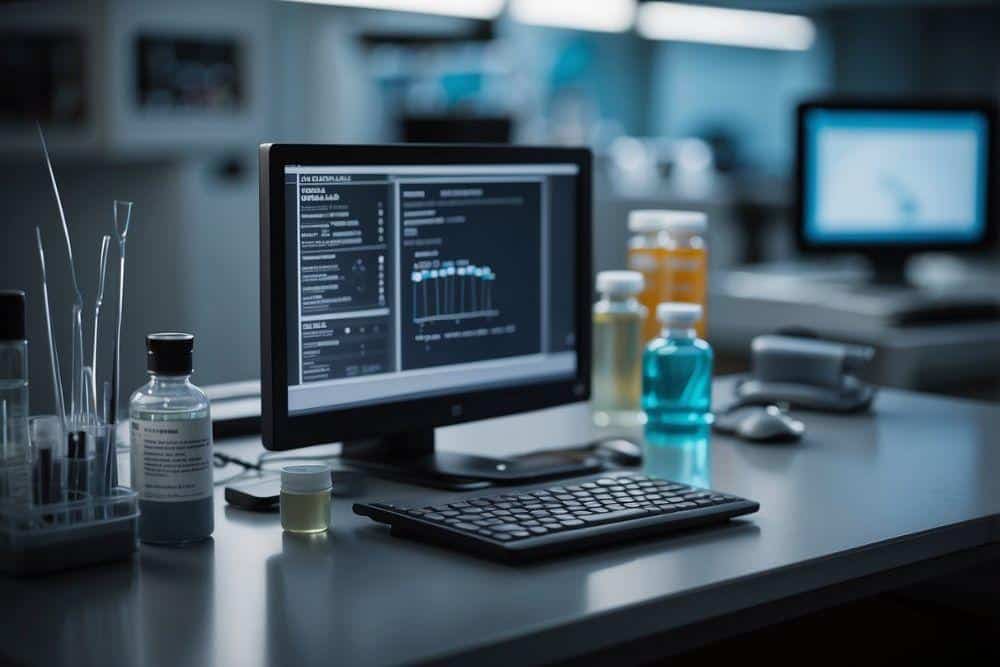
OralDNA Labs tests help tailor treatment for periodontal disease and show links between oral health and other systemic conditions like diabetes and cardiovascular disease.
Periodontal Disease Treatment
OralDNA Labs tests for bacteria causing gum disease. You get a detailed report identifying specific pathogens in your mouth.
This report guides your dentist in choosing the right antibiotics. It also informs them about necessary periodontal treatments.
Early detection of harmful bacteria aids in controlling gum inflammation. You can prevent attachment loss and further damage to your gums.
Using these test results, your dental providers can monitor bacterial levels and adjust your oral hygiene routine.
By following a more personalized treatment plan, you can reduce the risk of severe periodontal disease.
Systemic Health Correlations
OralDNA Labs tests do more than address oral health. They connect your oral health with systemic diseases like diabetes, heart disease, and stroke.
For example, managing oral bacteria helps control blood sugar levels in diabetes. Fewer bacteria reduce inflammation markers in your body.
Reducing gum inflammation lowers cardiovascular risk by decreasing harmful bacteria entering your bloodstream.
Your test results indicate if you’re at a higher risk for systemic conditions due to oral bacteria. This information helps you and your doctors create a comprehensive health plan.
Addressing your oral health can have a positive impact on your overall health, reducing risks associated with various systemic diseases.
Helping Dentists Formulate Treatment Plans
OralDNA Labs tests provide valuable insights for dental offices – including our staff here at Murphy Dental. They help us to create a treatment plan that is tailored to your specific health status and requirements. It also allows us to better inform our patients and provide more in depth education to our patients.
Treatment Planning
OralDNA Labs tests help in creating tailored treatment plans. Dentists can identify specific pathogens responsible for oral infections. This precise information aids in selecting appropriate antibiotics, combating periodontal infection effectively. Knowing the exact bacteria present allows for targeted treatments, reducing the trial-and-error approach.
Having an underlying infection can interfere with dental restorations like dental implants. Oral DNA testing can identify these infections that can interfere with many restorative dentistry procedures. For example, an oral infection can result in dental implant failure. Testing helps identify any potential issues prior to implant placement.
For those with chronic periodontal disease, these tests can help monitor disease progression. Regular testing ensures the chosen treatments work. This leads to better management of dental caries and periodontal infections, which improves overall oral health.
Patient Education
OralDNA Labs tests empower patients. They provide concrete data that helps in understanding the state of their oral health. When patients see the specific bacteria affecting their mouths, they understand the need for prescribed treatments. This awareness can improve adherence to treatment plans.
Patients can also understand the links between oral health and other health issues like cardiovascular disease and birth complications. These tests show the importance of maintaining good oral hygiene. Dental providers and hygienists can use this information to educate patients on preventive measures, helping them make informed decisions about their oral health.




